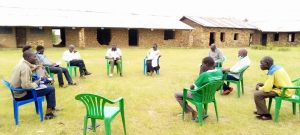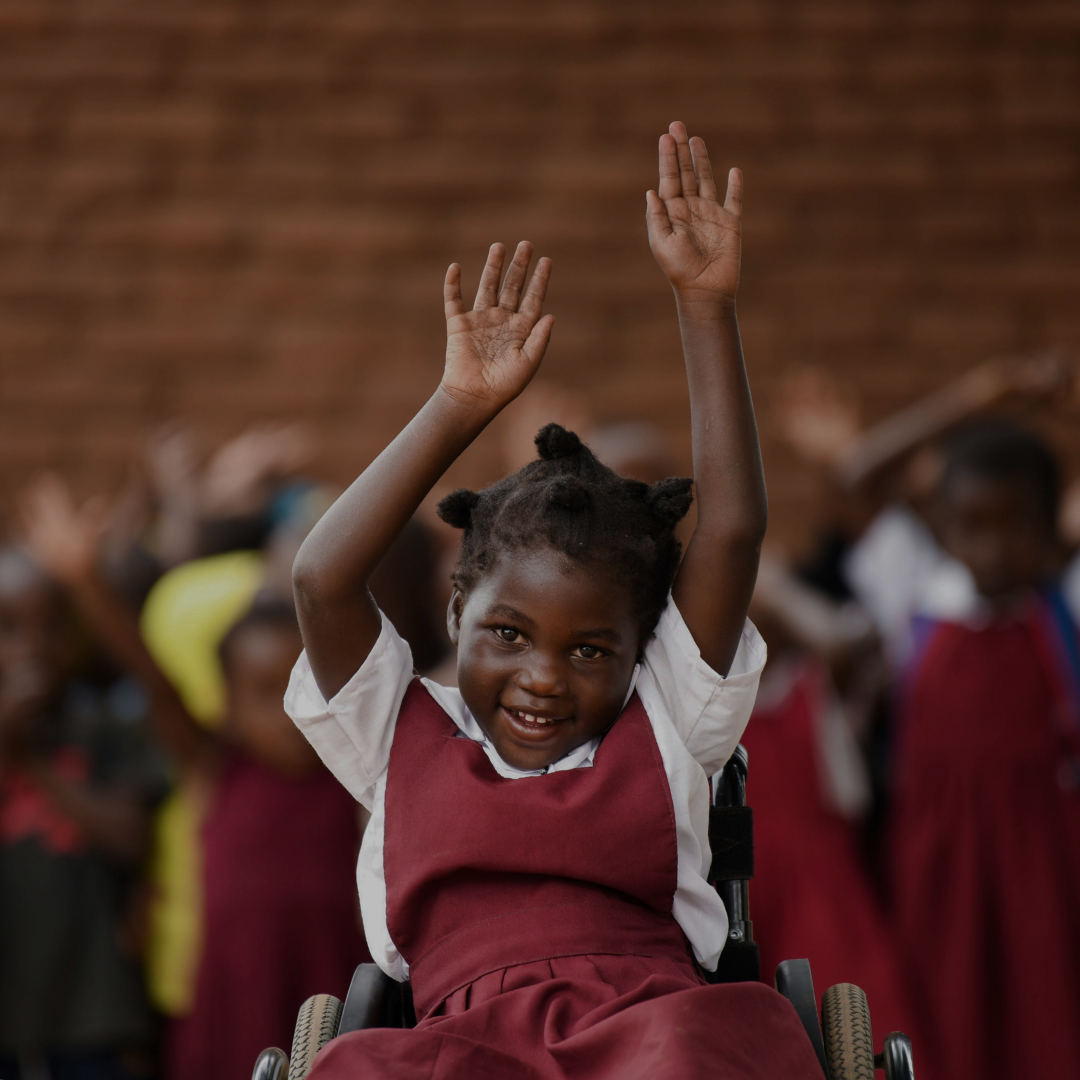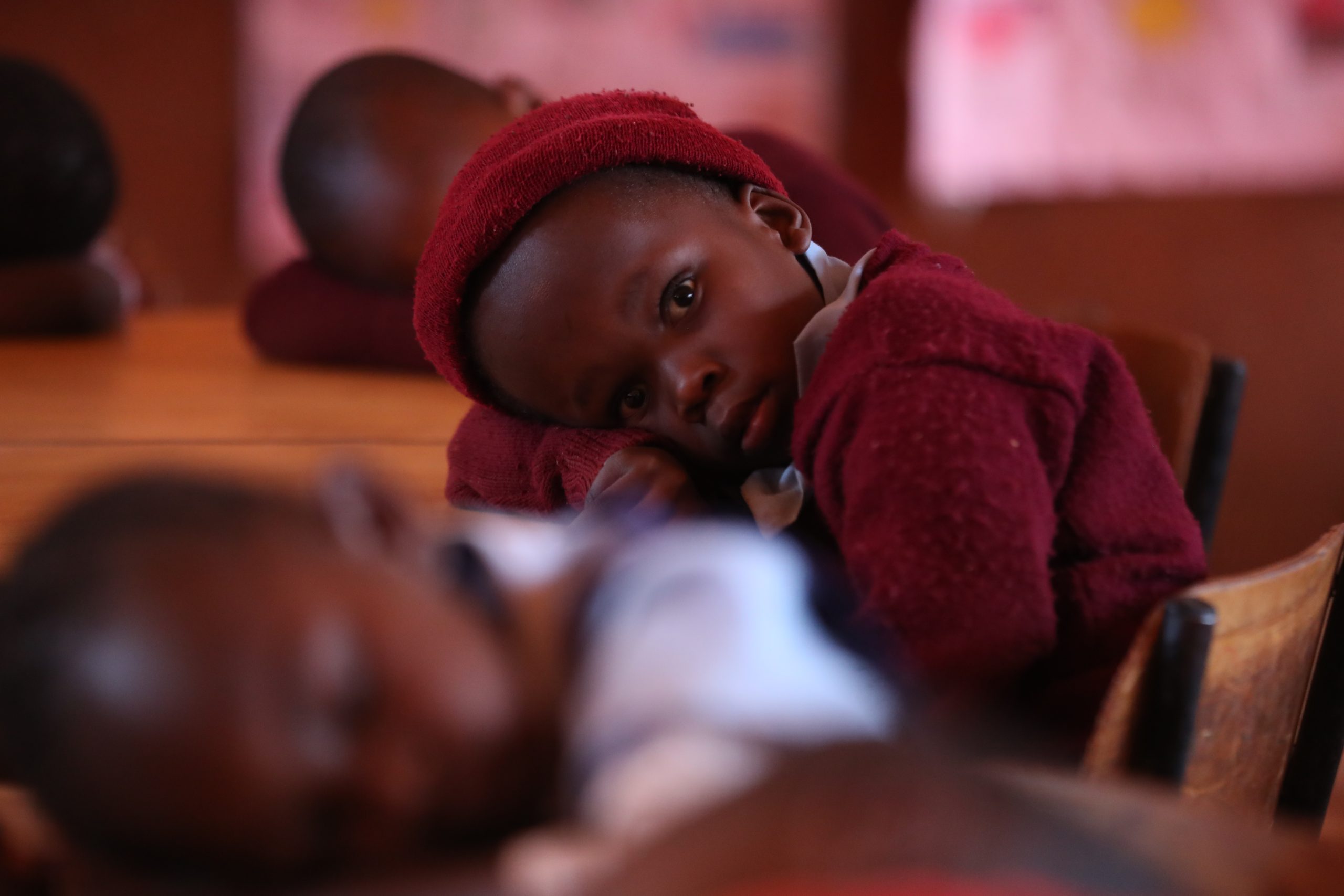The COVID-19 pandemic has affected our work and made life extremely difficult for many of our beneficiaries. However, we are working closely with our partners to adapt our projects and forge new solutions going forward, which will help us continue to protect, educate, and empower them.
It has been well reported by the international disability sector that the inaccessibility, isolation, and discrimination experienced by people with disabilities is likely to be exacerbated during the COVID-19 crisis. In particular, the restrictions on movement, and consequently paid work, means that many families are struggling.
Of the girls with disabilities in our Water, Sanitation and Hygiene project in Rwanda for example, many are struggling to keep clean and fed as their families struggle to acquire basic necessities.
In response, we have worked extremely closely with Uwezo Youth Empowerment staff to determine the type of support urgently needed by the project’s beneficiaries, which until now has focused on providing emergency food and gender-specific hygiene packages to children with disabilities. We have since distributed emergency food and hygiene packs to 160 most at risk families with support from UK Aid Direct and Jersey Overseas Aid.
Most importantly however, we are working with our donors in the UK to fortify this support long term. We are thrilled to be launching a new COVID-19 project with Uwezo Youth Empowerment next month, which will provide crucial support to make sure children with disabilities are clean, happy and safe during this crisis.
In Uganda and Kenya, schools closed in March to help stem the spread of the virus and are not expected to open until January next year. Initially this posed a huge barrier to our inclusive education projects, which work to enrol children with disabilities into mainstream education, and left many children vulnerable with mentoring, home visits and training not able to take place, with many also unable to access remote learning through radio and TV.
As part of our immediate response in Kenya, we have provided all our partner staff with PPE equipment so they can continue to visit children with disabilities in their homes, which is vital in making sure they are protected. In Uganda we have worked with our partner staff to run local campaigns on the importance of disability inclusive COVID-19 responses, particularly ensuring that children with disabilities receive accessible education materials and guidance relating to the pandemic.
Looking forward in Kenya, we are re-planning our projects to take place in alternative locations such as technical colleges so trainings and mentoring can resume, and in Uganda we are focusing on advocacy, capacity building and programme design so we are ready to ramp up our inclusive education projects with immediate effect as soon as schools re-open.
Our partner USDC have also participated in panel discussions broadcasted on national television in lockdown, which specifically focused on discussing the impact of government measures on children with disabilities’ education.
In Tanzania, schools have just recently reopened. Our efforts are now focused on making sure our project beneficiaries who were in school before lockdown, return, and more children with disabilities are consistently enrolled as lockdown measures ease. This is vital, as while in the UK school learning was able to go online with 90+% of our population on the internet, only 13% of the Tanzanian population is online, with many having no access to inclusive learning opportunities at home and at risk of further stigmatisation.
Together with our partner Child Support Tanzania we also recently ran a government advocacy workshop series that informed officials and ministers on the importance of inclusive COVID-19 responses, with public health information translated into inclusive formats for distribution.
Whilst COVID-19 continues to pose many challenges, Able Child Africa and our partners’ work is becoming increasingly vital. Recognising the multitude of barriers children with disabilities were facing even before this pandemic, it is crucial that we adapt and forge new solutions to fortify their futures. And we need your help to do this.








